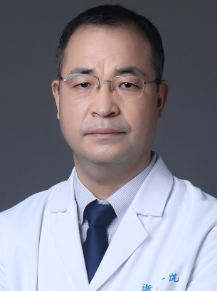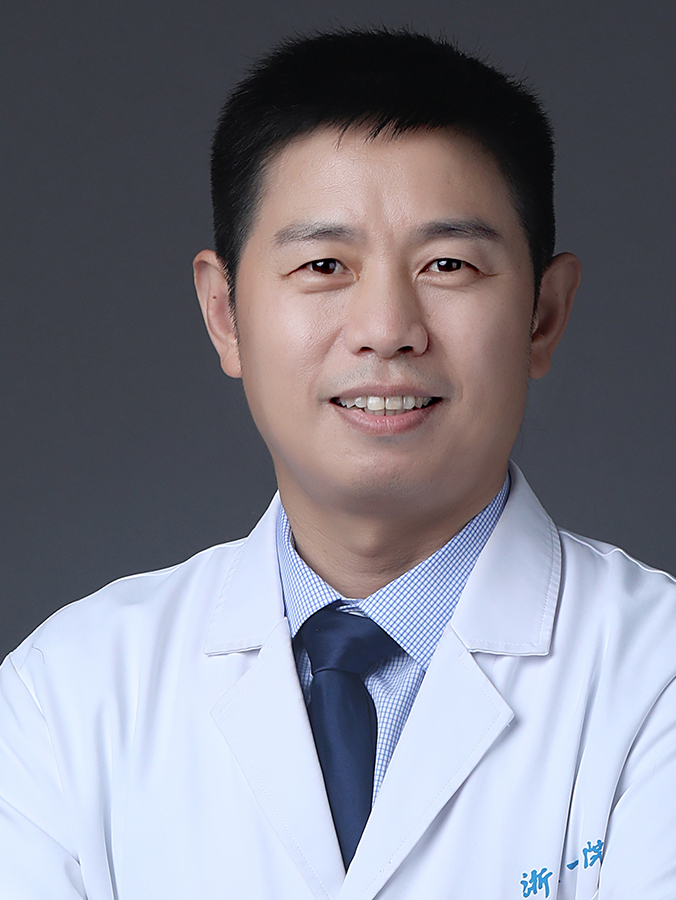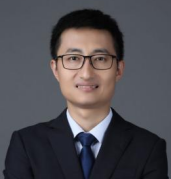Xiujue Zheng
Adult Cerebrovascular Anatomy Program Director.
Dr. Zheng is very familiar with the various surgical approaches. His research focuses on the anatomy of the skull base and complex cerebrovascular surgical procedures.

The Neurosurgery Neuroendoscopy Subspecialty Training Program at our hospital aims to provide an exceptional educational and training opportunity for international medical students and healthcare professionals. Our program focuses on the advanced techniques and applications of neuroendoscopy in the field of neurosurgery. With a dedicated team of experienced faculty and state-of-the-art facilities, we offer a comprehensive learning experience that combines theoretical knowledge with hands-on practical training. We are committed to equipping trainees with the skills and expertise necessary to excel in the diagnosis and treatment of various neurosurgical disorders using neuroendoscopic approaches, ultimately improving patient care and outcomes in this specialized area.
1. In-depth Procedure Training: Trainees will have the opportunity to learn a wide range of neuroendoscopic procedures, including endoscopic third ventriculostomy (ETV), endoscopic treatment of intraventricular lesions and endoscopic resection of pituitary tumors, meningioma, craniopharyngioma, chordoma and Rathke’s cysts.
2. Direct Faculty Interaction: Our faculty members are leading experts in neuroendoscopy, who are actively involved in patient care, research, and teaching. They will provide one-on-one guidance and mentorship throughout the training program.
3. Daily Clinical Exposure: Participants will be involved in daily clinical activities, such as patient rounds, preoperative evaluations, and postoperative follow-ups. This will give you a holistic understanding of the patient care process in neuroendoscopic surgery.
4. Multidisciplinary Teamwork: Trainees will work closely with neurologists, neuroradiologists, and other healthcare professionals in a multidisciplinary team setting, enhancing their communication and collaboration skills.
5. Simulation and Skills Training: Benefit from advanced simulation training facilities to practice neuroendoscopic techniques in a risk-free environment and improve technical proficiency.
1. To train trainees to proficiently perform neuroendoscopic procedures with a high level of technical skill and safety.
2. To enhance trainees' understanding of the indications, contraindications, and potential complications of neuroendoscopic surgeries.
3. To develop trainees' ability to make accurate preoperative diagnoses and develop appropriate treatment plans using neuroendoscopic techniques.
4. To foster trainees' research capabilities in the field of neuroendoscopy, enabling them to critically evaluate and contribute to the existing literature.
5. To improve trainees' communication and interpersonal skills for effective interaction with patients, families, and the multidisciplinary healthcare team.
The program offers a full-time training experience ranging from 1 month to 6 months, depending on the individual's needs and interests.
All applicants should have a good command of the English language, both in written and oral communication. International medical graduates must have their degrees and credentials evaluated and recognized by the appropriate medical authorities in our country.
• Fellows:
1. Must hold a board certification or equivalent in neurosurgery or a related specialty.
2. Have prior experience in neurosurgical procedures and a specific interest in neuroendoscopy.
• Residents:
1. Should have completed at least one year of a neurosurgery residency program.
2. Have a strong academic record and a demonstrated interest in neuroendoscopy.
• Students:
1. Must be in the clinical phase of medical education and have completed basic neuroscience and surgical clerkships.
2. Provide a letter of recommendation from a neurosurgery faculty member at their home institution.
Focus Areas & Subspecialties:
1. Intraventricular endoscopy: Endoscopic treatment of hydrocephalus, intraventricular lesions (such as tumors and colloid cysts)
2. Endoscopic surgery for intracranial hemorrhage
3. Pituitary Surgery: Endoscopic transsphenoidal resection of pituitary adenomas.
4. Skull Base Surgery: Endoscopic approaches to skull base tumors and lesions.
5. Neuroendoscopic Navigation and Imaging: Utilization of advanced imaging and navigation techniques in neuroendoscopy.
Skills:
1. Endoscopic Instrument Handling: Proficiency in using neuroendoscopic instruments, such as endoscopes, forceps, and scissors.
2. Anatomical Navigation: Ability to navigate through the complex intracranial anatomy using endoscopic visualization.
3. Tissue Resection and Biopsy: Skill in performing precise tissue resection and biopsy using neuroendoscopic techniques.
4. Hemostasis: Techniques for achieving hemostasis during neuroendoscopic procedures.
5. Intraoperative Problem-solving: Ability to handle intraoperative complications and challenges in neuroendoscopy such as skull base repair and reconstruction techniques.
6. Postoperative Care: Understanding and implementing appropriate postoperative care for neuroendoscopic patients.
Monday
1st Week: Orientation, introduction to the program and department, overview of neuroendoscopy.
Weekly: Case presentations and discussions, multidisciplinary team meetings.
Weekly: Mentor-guided study on neuroanatomy relevant to neuroendoscopy.
Tuesday
Weekly: Patient preoperative evaluations and postoperative follow-ups, hands-on training in endoscopic instrument handling.
Weekly: Journal club, discussing recent publications in neuroendoscopy.
Wednesday
Weekly: Clinical observation in the neuroendoscopy operating room, lecture on endoscopic techniques and equipment.
Biweekly: Research seminar on current topics in neuroendoscopy research.
Thursday
Weekly: Outpatient clinic observation, learning about patient selection and preoperative counseling.
Last Week: Trainee presentations on a chosen neuroendoscopy topic, program evaluation and feedback session.
Friday
Weekly: Surgical skills training in the laboratory, including endoscopic tissue resection and hemostasis.
Biweekly: Complex case analysis and treatment planning.
1. Regular assessments of trainees' knowledge and skills will be conducted through written exams, practical demonstrations, and case presentations.
2. Faculty members will provide continuous feedback during the training process, both in the clinical and laboratory settings.
3. At the end of the program, a comprehensive evaluation will be performed, including a review of the trainee's performance in procedures, patient management, and research activities.
4. Trainees will also have the opportunity to evaluate the program and provide suggestions for improvement.

Adult Cerebrovascular Anatomy Program Director.
Dr. Zheng is very familiar with the various surgical approaches. His research focuses on the anatomy of the skull base and complex cerebrovascular surgical procedures.

Endoscopic minimally invasive surgical treatment of brain and spinal cord tumors: transnasal-sphenoid neuroendoscopic surgery of sellar tumors such as pituitary tumor, meningioma, chordoma and craniopharyngioma; minimally invasive surgical treatment of functional diseases such as refractory epilepsy.

Graduated from Zhejiang University School of Medicine, he has been engaged in clinical work and clinical teaching of neurosurgery for more than 10 years, presided over several provincial and ministerial scientific research projects, and published many scientific research articles with international influence. He is good at accurate minimally invasive diagnosis and treatment of pituitary diseases, and using neurosurgical robots to accurately treat brain tumors, hemorrhage, epilepsy and other diseases.

Dr. Bu is graduated from Fudan University, and has been worked as a neurosurgeon for dozens of years. His interests lie in the neuroendoscopic surgical techniques, minimally invasive treatment of brain tumors and refractory epilepsy with multimodal neuroimaging techniques and years of effort has been made to lower the rate of postoperative neurological deficits. These works have been published in journals including Journal of Neuro-Oncology, Neurosurgical Review and Brain Communication.
The program is free of charge.